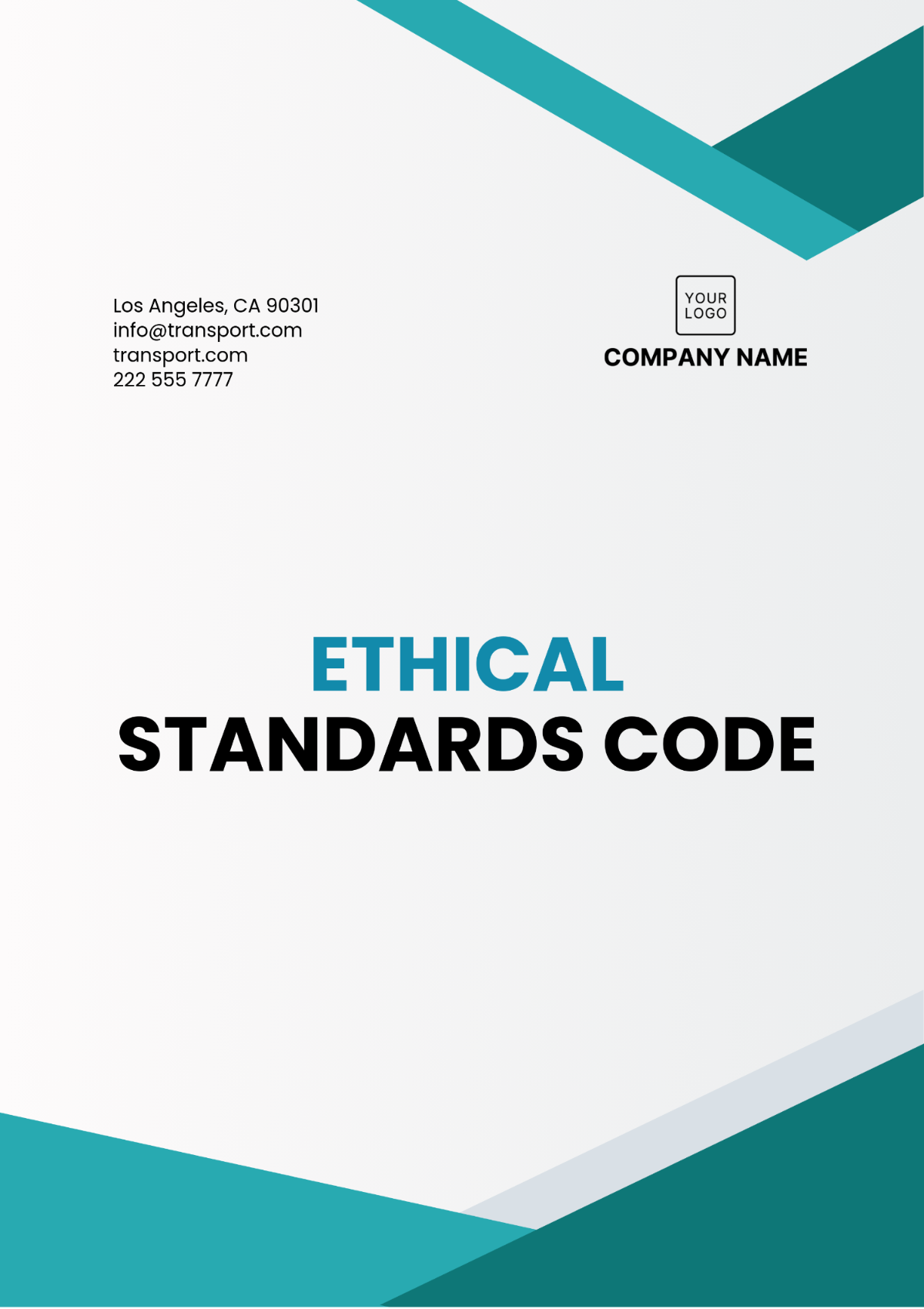Okay, picture this: You're at a company picnic, ribs are sizzling, the sun is shining, and your boss just casually mentions, "Hey, about those numbers for Q3... maybe we could, uh, *slightly* adjust them? Just a tiny tweak, you know, for the good of the shareholders!" Suddenly, that potato salad doesn't taste so good anymore, does it?
That's the kind of situation where ethical standards come crashing down around you like a rogue wave. It's not always some dramatic whistleblower movie scene; sometimes it's just a "friendly" suggestion that makes your stomach churn.
So, what *are* these mystical ethical standards everyone keeps talking about in the business world? And why should you even care? (Spoiler alert: you should. Your conscience and possibly your freedom depend on it!)
What Are Ethical Standards, Really?
Essentially, ethical standards are the moral compass of a company (or, ideally, *every* individual working there). They're the set of principles that guide decision-making and behavior, ensuring that things are done fairly, honestly, and with integrity. Think of it as the rules of the game, but instead of winning, the goal is to do the right thing, even when it's hard.
These standards cover a wide range of areas. Here are a few of the biggies:
- Honesty and Integrity: This is the bedrock. Being truthful in all dealings, avoiding deception, and keeping your word. No fibs, no sneaky tricks, no hiding the truth. Ever.
- Fairness and Impartiality: Treating everyone equally, regardless of race, gender, religion, or, you know, whether they brought the good dip to the picnic. Decisions should be based on merit, not favoritism.
- Respect for Others: Valuing the dignity and rights of every individual, whether they're a CEO or the person who empties the trash cans. No harassment, no discrimination, just basic human decency.
- Confidentiality: Keeping sensitive information private and secure. Think of it like Fort Knox, but for company secrets. No gossiping about clients, leaking product information, or selling trade secrets to the competition.
- Social Responsibility: Considering the impact of business decisions on the wider community and the environment. This is where things get a little more philosophical. Are you polluting the local river? Are you sourcing your materials ethically? Are you giving back to the community?
- Compliance with Laws and Regulations: This seems obvious, but you'd be surprised how many companies try to skirt the rules. Adhering to all applicable laws, regulations, and industry standards. (Duh!)
Basically, it's about doing things the *right* way, even when it's not the *easiest* way. And believe me, sometimes it's *really* not the easiest way. That's where your personal moral compass needs to kick in.
Why Are These Standards Important?
So, why all the fuss about ethics? Is it just a bunch of corporate jargon designed to make companies sound good? Well, partly, yes. But there's more to it than that.
Ethical behavior builds trust. Trust with customers, employees, investors, and the public. A company with a reputation for ethical behavior is more likely to attract and retain talent, build strong customer loyalty, and attract investors. Think about it: would *you* trust a company that's known for cutting corners and lying to its customers?
Ethical standards also help to prevent fraud and corruption. A strong ethical culture can deter employees from engaging in illegal or unethical activities, saving the company from potential legal and financial disasters. (And saving you from ending up in an orange jumpsuit!)
And finally, let's be honest, it's just the right thing to do. We all want to work for a company that we can be proud of, a company that treats its employees and customers with respect, and a company that contributes to a better world.
So, next time you're faced with an ethical dilemma at work, remember that ribs-and-potato-salad scenario. Ask yourself: Is this the right thing to do? Would I be comfortable explaining this decision to my family, my friends, or even the front page of the newspaper? If the answer is no, then maybe it's time to rethink your strategy (and maybe find a different picnic to attend!).
Because at the end of the day, your integrity is the most valuable asset you have. Don't let a "tiny tweak" compromise it.




